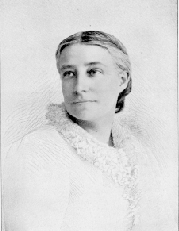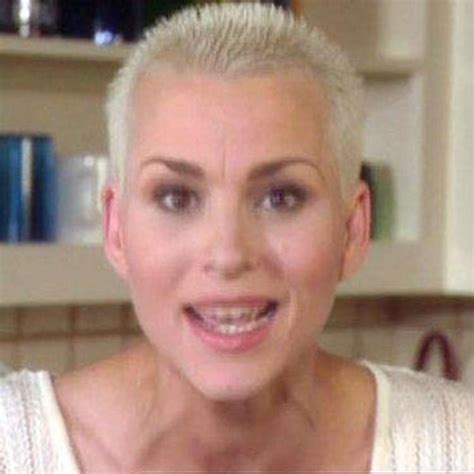A Quote by Rodney Dangerfield
She was so fat that her clothes are made by Omar the tent maker.
Related Quotes
The thought that, insignificant as she was, she yet might do some good, made her very careful of her acts and words, and so anxious to keep head contented and face happy, that she forgot her clothes, and made others do the same. She did not know it, but that good old fashion of simplicity made the plain gowns pretty, and the grace of unconsciousness beautified their little wearer with the charm that makes girlhood sweetest to those who truly love and reverence it.
I actually grew fond of her in a nastily superior kind of way. For she was so completely artless and optimistic and clueless, she didn't care that she smelled bad or was fat or wore clothes unlike everyone else's, she had some weird disconnect with life that kept her constantly bubbling, and you knew she would go blithely through her long horribly boring life thinking every thing was just swell (the opposite of me).
The Girl of the Period, sauntering before one down Broadway, is one panorama of awful surprises from top to toe. Her clothes characterize her. She never characterizes her clothes. She is upholstered, not ornamented. She is bundled, not draped. She is puckered, not folded. She struts, she does not sweep. She has not one of the attributes of nature nor of proper art. She neither soothes the eye like a flower, nor pleases it like a picture. She wearies it like a kaleidoscope. She is a meaningless dazzle of broken effects.
And when she started becoming a “young lady,” and no one was allowed to look at her because she thought she was fat. And how she really wasn’t fat. And how she was actually very pretty. And how different her face looked when she realized boys thought she was pretty. And how different her face looked the first time she really liked a boy who was not on a poster on her wall. And how her face looked when she realized she was in love with that boy. I wondered how her face would look when she came out from behind those doors.
Where woman has taken her place in business she has found her method ready-shaped for her, and following that, she does her work,if with a certain amount of monotony, yet without undue fatigue. Her hours are fixed, and as a rule she gets needful change of scene as she goes to her business and returns to her home or the place where she lives. But the "home- maker" has not, nor can she have, any such change, and her hours are always from the rising of the sun beyond the going down of the same.
Her [Eleanor Roosevelt] father was the love of her life. Her father always made her feel wanted, made her feel loved, where her mother made her feel, you know, unloved, judged harshly, never up to par. And she was her father's favorite, and her mother's unfavorite. So her father was the man that she went to for comfort in her imaginings.


































